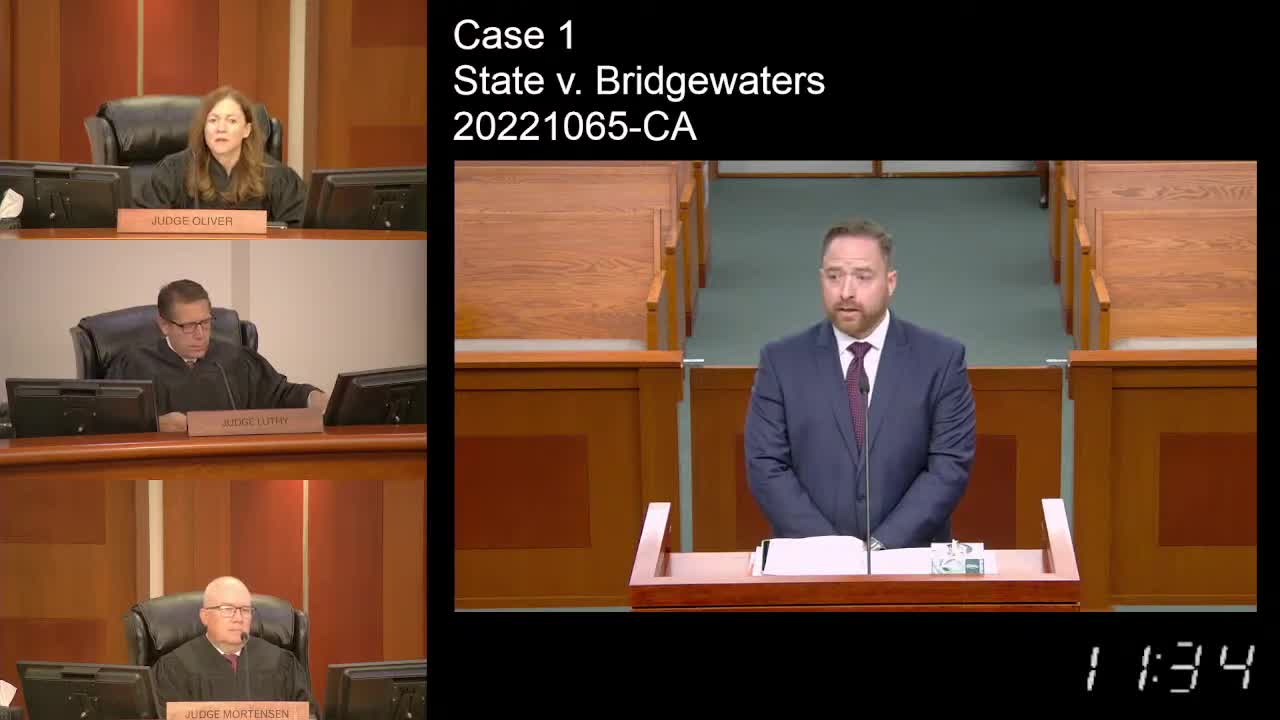Court Hears Arguments on Missing Transcripts in Bridgewater Self-Representation Case
August 07, 2025 | Utah Court of Appeals Live Stream, Utah Appellate Court, Utah Judicial Branch, Utah
Thanks to Excel Chiropractic and Scribe from Workplace AI , all articles about Utah are free for you to enjoy throughout 2025!

This article was created by AI using a video recording of the meeting. It summarizes the key points discussed, but for full details and context, please refer to the video of the full meeting. Link to Full Meeting
The dialogue highlighted concerns about missing transcripts from previous hearings, which could potentially impact the evaluation of Mr. Bridgewater's understanding of his rights. The prosecutor noted that there had been references to prior colloquies—formal discussions about a defendant's rights—during earlier hearings, yet the absence of these records raised questions about the completeness of the case documentation. This lack of clarity could hinder the court's ability to assess whether Mr. Bridgewater was adequately informed before deciding to represent himself.
Legal representatives argued that even if prior colloquies existed, the court's focus should be on the specific time of waiver, as established in previous rulings. They emphasized that the absence of a formal colloquy during a significant July 2021 hearing, where Mr. Bridgewater was allowed to proceed pro se, could indicate a failure to ensure that he fully understood the implications of waiving his right to counsel.
The discussion also touched on the presumption of regularity in court proceedings, suggesting that if Mr. Bridgewater was permitted to represent himself, it could imply that prior hearings had sufficiently addressed his understanding of legal processes. However, the defense maintained that without clear evidence from those earlier hearings, it was challenging to confirm that Mr. Bridgewater had made an informed decision.
As the court deliberates on these issues, the outcome could have significant implications for Mr. Bridgewater's case and the broader principles of self-representation rights in Utah. The discussions underscore the importance of thorough documentation and clear communication in legal proceedings, ensuring that defendants are fully aware of their rights and the consequences of their choices. The court's next steps will be crucial in determining how these factors will influence the final ruling in this case.
Converted from 20221065- State v. Bridgewaters audio file meeting on August 07, 2025
Link to Full Meeting
Comments
View full meeting
This article is based on a recent meeting—watch the full video and explore the complete transcript for deeper insights into the discussion.
View full meeting

